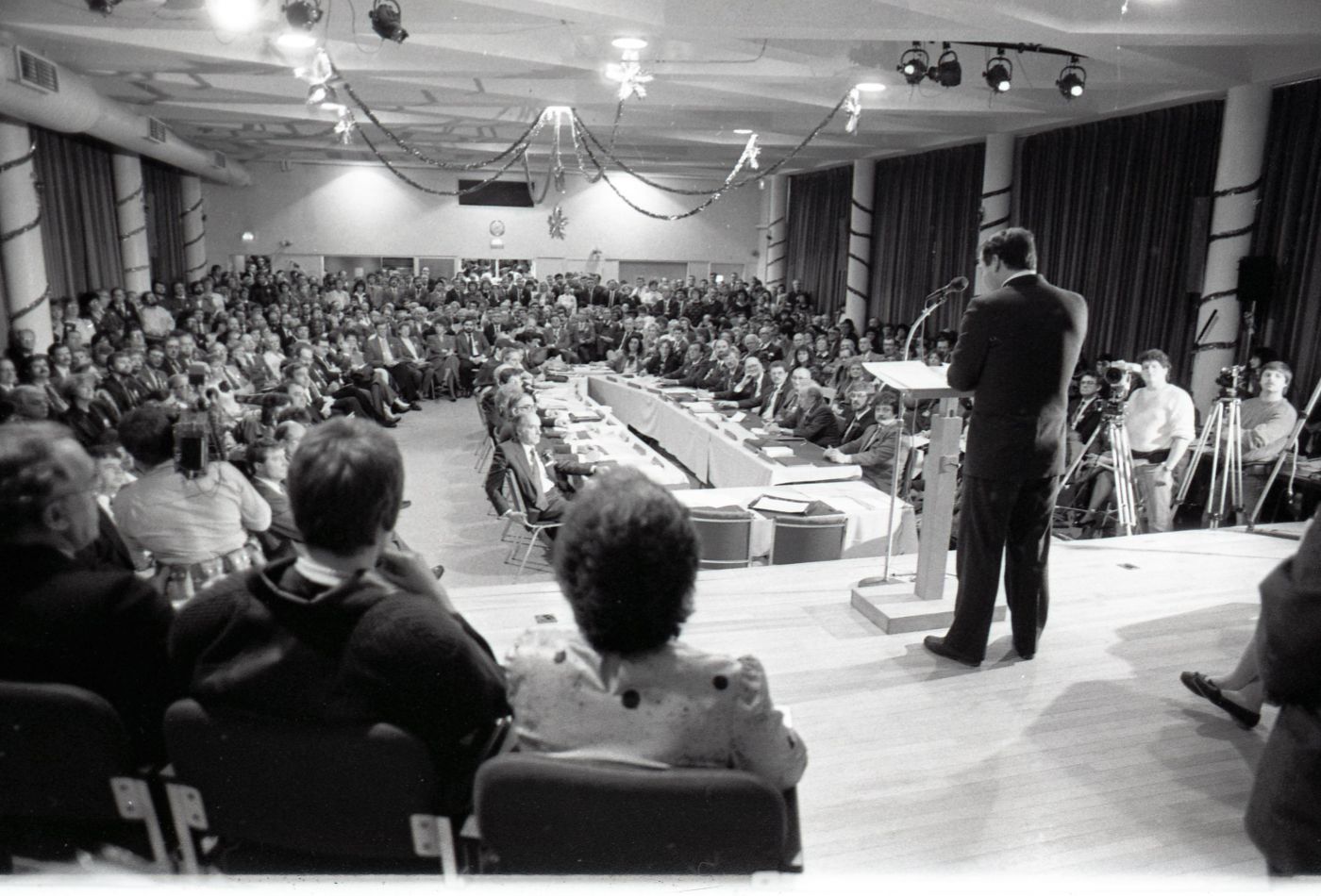On December 5, 1988, the creation of the Conseil scolaire de langue française d’Ottawa-Carleton is celebrated with great fanfare at Vanier City Hall. Some 600 people take part in this historic event: long-time activists, politicians, academics, school directors, parents, teachers, pupils, journalists, and clergy ... all come to celebrate the crowning achievement of 25 years of hard work.
Nonetheless, if euphoria is in the airthat evening, so is apprehension. In the Ottawa-Carleton region, relations between the Catholic and public systems have been virtually severed for several years because of fierce competition for Francophone clientele. “Collaboration and mutual respect, considered essential to its success by all who have prepared models of implementation, are lacking.”1
The Conseil scolaire de langue française d’Ottawa-Carleton comprises two sections – one separate (Catholic) and the other public (non-denominational) – headed by a Plenary Council composed of members from the two sections. The experience is short-lived. The Conseil scolaire de langue française d’Ottawa-Carleton gives up the ghost barely five years later.
The sources of discord are numerous. There is lack of agreement regarding the respective roles of the two sections and the Plenary Council, which is said to be costly and redundant. Opinions differ on what can be shared and what should be exclusive. The unequal representation of the two sections on the Plenary Council adds to the frustrations of elected members of the public section who do not accept that they should be in the minority on the Plenary Council and say they are at the mercy of the vote of Catholic elected representatives. They advocate actively for the autonomy of their schools, even if it means approaching the English-language school boards. Many Francophones feel betrayed. Inadequate funding, which causes the public sector to become increasingly bogged down with deficits, is another problem.
It soon becomes clear that it is not possible for the public and Catholic schools to co-exist within the same structure. On July 1, 1994, the Plenary Council is dissolved and two distinct Francophone school boards are created by Order in Council: the Conseil des écoles catholiques de langue française d’Ottawa-Carleton and the Conseil des écoles publiques d’Ottawa-Carleton.
The Ottawa-Carleton experience is not repeated elsewhere in the province. A new French-language school system for all of Ontario, consisting of four public regional school boards and eight separate Catholic school boards, has been in place since January 1, 1988.
1 Odile Gérin, D’un obstacle à l’autre : vers le Conseil scolaire de langue française, Vanier, L’Interligne, 1988, p. 136 (translated from the original).
